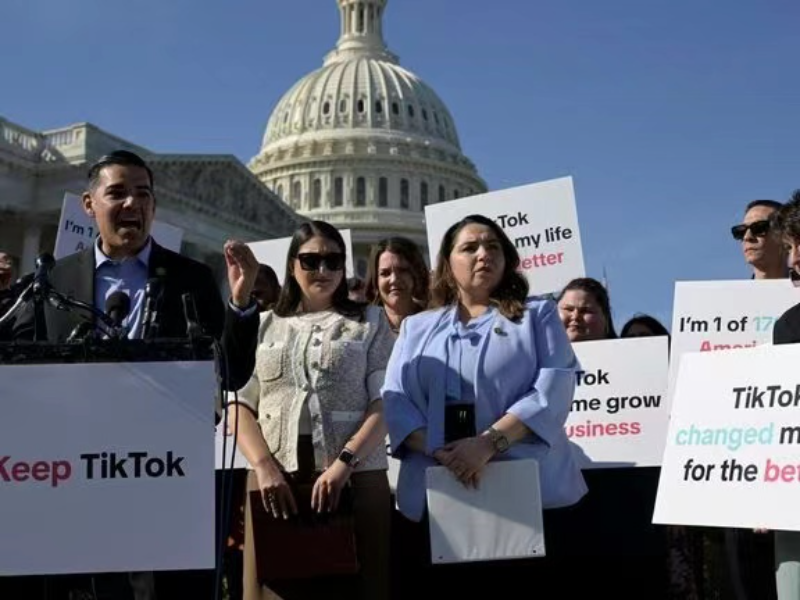- US Senate Commerce Committee Chair Maria Cantwell suggested extending ByteDance’s deadline to divest TikTok in the US by one year, amid discussions on potentially reviewing the House bill.
- The TikTok Act has stirred debate, with some young Democrats questioning its timing in an election year, while TikTok argues against it, citing its economic contributions and First Amendment concerns.
- Chinese officials criticized the US House’s passage of the bill, alleging it undermines fair competition and international trade rules, cautioning against using ‘national security’ as a pretext for stifling foreign enterprises.
Chair of the US Senate Commerce Committee Maria Cantwell stated that legislators may seek to extend ByteDance’s deadline to divest TikTok in the US by one year, until after the US election. Cantwell expressed support for the one-year extension and ongoing discussions, mentioning the potential Senate review of the House version of the bill, which might yield a better outcome. On March 13, the US House voted 352 to 65 to require ByteDance to divest TikTok within approximately six months or face a ban.
This legislation could be a political misstep in an election year
Some young Democrats believe this legislation could be a political misstep in an election year, as left-wing candidates heavily rely on young voters. If the Senate passes its own version of the TikTok-focused bill, it must ultimately reconcile with the House and then be submitted to President Joe Biden for approval. The “TikTok Act” has become a significant issue in American society, with legislators receiving numerous calls opposing the legislation.
TikTok generated $14.7 billion in revenue for US small businesses in 2023
TikTok argues that this legislation would infringe upon the First Amendment rights of 170 million Americans and deprive 5 million small businesses of the platform they rely on for development and job creation. Statistics show that TikTok generated $14.7 billion in revenue for US small businesses in 2023, contributing $24.2 billion to the US economy, and about seven out of ten US small businesses believe TikTok has increased their sales. US Treasury Secretary Janet Yellen held a press conference in Beijing on April 8, responding to US attempts to “ban” TikTok by stating that she had briefly discussed the issue with China and acknowledged America’s “legitimate concerns,” but “America hopes to find a way forward on TikTok”.
Regarding the US House’s passage of the TikTok Act, Chinese Foreign Ministry spokesperson Wang Wenbin stated on March 14 during a routine press conference that the bill puts the US at odds with the principles of fair competition and international trade rules. Wang Wenbin pointed out that if the so-called reason of “national security” can be used to arbitrarily suppress excellent enterprises of other countries, there is no fairness or justice, and it is entirely a logic of robbery to try to take possession of good things seen in others.

